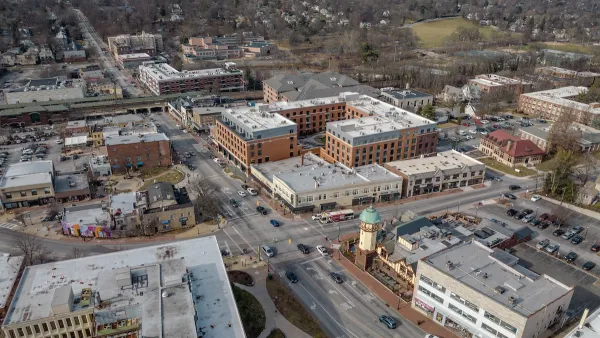City planners should be wary of any predictions that downplay the unknowability of the future by projecting present conditions onto it.
Envisioning cities of the future can sometimes be more at home in science fiction than urban planning. Optimism generally looms large in these visions. At the 1939 World’s Fair, the exhibit, “World of Tomorrow”—with its motto “For Peace and Freedom”—featured an elaborate futuristic model city called Democracity, a tribute to the reigning techno-utopian hopes of the time. Millions of visitors were awed by it. In a dark twist of irony, the model was melted down only a few years later to provide four thousand tons of steel for making bombs in World War II. This was only one of many 20th century futuristic urban visions that failed to materialize.
The New York Times columnist and George Mason economist Tyler Cowen has produced a vision that no one can accuse of being techno-utopian. In Average is Over: Powering America Beyond the Age of the Great Stagnation, Cowen sees reason for cities to accept some grim realities of the present as they plan for their future.
Cowen’s argument centers on the labor market. He points out that technological development and increasing foreign competition have decreased the demand for middle-wage workers. For the last twenty years in the U.S. as well as sixteen European countries, low-wage occupations rose as a share of the total labor market while middle-wage occupations declined. The recent 2008-2009 recession only solidified this reality, as many of the middle-wage jobs were replaced by new low-wage jobs.
FULL STORY: The Hazards of Predicting the Future of Cities

Analysis: Cybertruck Fatality Rate Far Exceeds That of Ford Pinto
The Tesla Cybertruck was recalled seven times last year.

National Parks Layoffs Will Cause Communities to Lose Billions
Thousands of essential park workers were laid off this week, just before the busy spring break season.

Retro-silient?: America’s First “Eco-burb,” The Woodlands Turns 50
A master-planned community north of Houston offers lessons on green infrastructure and resilient design, but falls short of its founder’s lofty affordability and walkability goals.

Test News Post 1
This is a summary

Analysis: Cybertruck Fatality Rate Far Exceeds That of Ford Pinto
The Tesla Cybertruck was recalled seven times last year.

Test News Headline 46
Test for the image on the front page.
Urban Design for Planners 1: Software Tools
This six-course series explores essential urban design concepts using open source software and equips planners with the tools they need to participate fully in the urban design process.
Planning for Universal Design
Learn the tools for implementing Universal Design in planning regulations.
EMC Planning Group, Inc.
Planetizen
Planetizen
Mpact (formerly Rail~Volution)
Great Falls Development Authority, Inc.
HUDs Office of Policy Development and Research
NYU Wagner Graduate School of Public Service




























